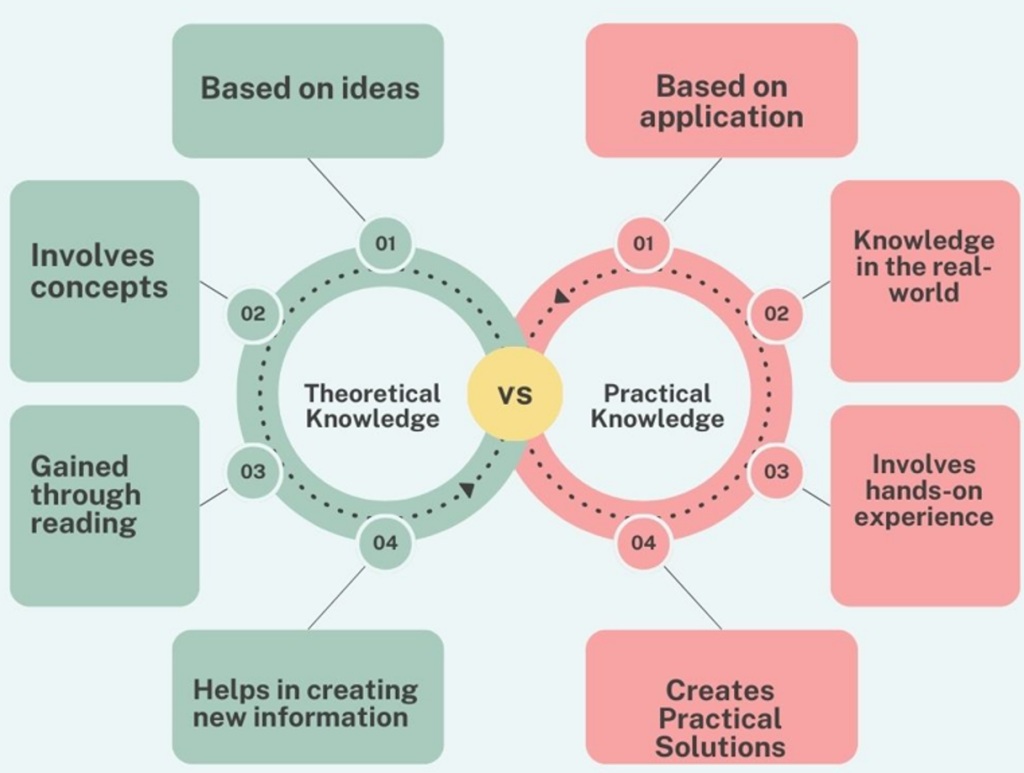What Is a B-School, Really?
In today’s fast-evolving educational landscape, the term B School Meaning comes up quite often, especially among students eyeing a career in business, management, or entrepreneurship. But what exactly is a B-School, and how does it differ from the typical college or university setup? If you’ve ever pondered that question, you’re in the right place. This article dives into the true essence of what a B-School is, what it offers, and how it stands apart from regular colleges—not just in name, but in purpose, experience, and outcome.
Defining the B School Meaning
Understanding the B School Meaning requires more than just a textbook definition. B-Schools, short for Business Schools, are institutions that focus exclusively or primarily on teaching courses related to business, management, finance, marketing, and other corporate disciplines. While traditional colleges provide a broad range of academic disciplines—from history and literature to biology and engineering—B-Schools are laser-focused on developing business leaders and professionals who are ready to take on the challenges of the global market.
More Than Just Business Classes
Now, that might sound straightforward, but the B School Meaning is wrapped in much more than a set of business classes. It’s a cultural and structural experience that promotes practical learning, case study analysis, soft skills development, leadership training, and often, a global perspective. These institutions aren’t just about reading from books; they’re about solving real-world business problems in real time.
Practical vs. Theoretical Learning

One of the key differences that sets the B School Meaning apart is the professional orientation of the curriculum. While a regular college may prioritize academic theory or research, a B-School aims to equip students with tools they can use on day one in a corporate setting. Whether it’s mastering Excel for financial modeling, crafting a market entry strategy, or leading a mock negotiation, the hands-on nature of B-School training mimics the dynamic pace of real businesses.
The Power of Networking and Industry Exposure
But this isn’t to say that B-Schools are better than regular colleges—it’s just that they’re different, built for a different purpose. The B School Meaning carries with it an emphasis on networking, peer learning, and exposure to industry leaders. Guest lectures from CEOs, startup founders, or top-level consultants are regular occurrences. Students are often encouraged to participate in business plan competitions, join industry-specific clubs, and attend networking events that bring them face-to-face with decision-makers.
Admissions with a Career Focus
A Different Kind of Evaluation
When it comes to admissions, business schools (often referred to as B-Schools) differ significantly from traditional colleges and universities. The process reflects the career-centric nature of these institutions. Unlike regular colleges, which focus heavily on academic grades, standardized test scores, and extracurricular involvement, B-Schools dig deeper.
Leadership and Potential
Admissions committees at top business schools are particularly interested in a candidate’s leadership potential. They want to understand how an applicant has demonstrated initiative, taken responsibility, and inspired others. It’s not just about whether someone has a high GPA—it’s about whether they have the qualities of a future leader in the business world. Applicants often wonder, is business school hard because of the high bar set during this process.
Career Aspirations Matter
Another key element is a student’s career goals. B-Schools want to ensure that applicants have a clear vision of where they are headed professionally. This isn’t just helpful for the school—it’s essential for the student. Having focused goals helps answer the common question: is business school hard if you’re not sure what you want to do? The answer is yes—it’s even harder without direction.
The Role of Personal Statements
Personal essays or statements are also a critical part of the application. These narratives give applicants the chance to explain their motivations, ambitions, and the reasons for pursuing an MBA or similar program. It’s often during this reflective writing process that students realize just how much clarity is needed—again raising the question, is business school hard for those still discovering their path?
Holistic Review Process
Business schools adopt a holistic review process. They assess a candidate’s full profile—academic background, work experience, leadership examples, communication skills, and long-term vision. Because of this, even strong candidates may feel overwhelmed and ask themselves, is business school hard to get into? The answer depends on how well-rounded their application is.
The B-School Meaning and Career Alignment
The meaning of B-School itself is rooted in professional advancement. These schools are not just educational institutions—they’re career accelerators. If your goal is to pivot careers, grow your leadership skills, or build a professional network, business school might be your launchpad. But again, is business school hard when you’re juggling career shifts and academic pressures? It can be—but it’s also transformative.
Rigorous Yet Rewarding
Many prospective students fear the academic challenge ahead. From finance and marketing to operations and strategy, the curriculum is intense. They ask, is business school hard academically? Yes, especially if you’re balancing it with work, family, or other responsibilities.
Beyond the Classroom
B-Schools also demand a lot outside the classroom—networking events, case competitions, internships, and team projects. This leads many to wonder, is business school hard when you’re also trying to build relationships and a professional brand? It is, but that’s part of the value.
Support Systems in Place
Thankfully, most B-Schools provide resources to support students: career coaching, mentorship programs, academic tutoring, and mental health services. Even with these, the question often remains: is business school hard emotionally and mentally? At times, yes—but students often emerge stronger and more resilient.
In conclusion, the admission process for business schools is more than a gatekeeping exercise—it’s a way of identifying individuals who are ready to grow, lead, and transform their careers. And while the question, is business school hard, comes up frequently, the answer is that it’s challenging, but intentionally so. That’s what makes it worth the effort.
Strong Career Outcomes and Job Placement
Let’s talk about career outcomes. The B School Meaning is often equated with better job prospects, higher starting salaries, and a clearer career path. This is not by accident. The structured recruiting process in B-Schools, paired with corporate partnerships and internship pipelines, gives students access to roles that may be out of reach for graduates of a traditional program.
Unique Learning Environments
The classroom experience is another major distinction. Regular colleges often follow a professor-lecture model with standard testing and grading. In contrast, the B School Meaning includes methods like the case method, experiential learning, peer evaluations, and project-based assessments. Students are expected to participate, present, and debate.
Not Just for MBAs

Now, while the B School Meaning is deeply associated with MBA programs, it’s worth noting that many B-Schools also offer undergraduate and executive education programs. This broadens their reach and allows different types of learners to benefit from the B-School approach, whether they’re fresh out of high school or seasoned professionals looking to climb the corporate ladder.
Alumni Networks and Lifelong Communities
The learning doesn’t end in the classroom. One of the often-overlooked aspects of the B School Meaning is the community and alumni network that comes with it. These networks are powerful, global, and often lifelong. Alumni associations, mentoring programs, and industry panels ensure that students continue to benefit from their B-School long after graduation.
A Reputation for Leadership
You might also notice that many of the world’s top business leaders and entrepreneurs are B-School graduates. This isn’t to say that success only comes from attending one, but the B School Meaning often includes the cultivation of a strategic mindset, resilience, and innovation.
High-Intensity, Real-World Simulation
Business school isn’t just about case studies and networking events—it’s a pressure cooker designed to simulate the high-stakes environment of the real business world. The term “B School Meaning” carries with it not only prestige and opportunity but also a level of intensity that can surprise even the most prepared students.
More Than Just Academics
Yes, the curriculum is rigorous. You’ll be diving into finance models, strategic frameworks, and market analyses. But the intensity goes far beyond the classroom. Many students describe the experience as mentally exhausting, emotionally challenging, and even physically draining at times. It’s not uncommon to find yourself reviewing financial statements at midnight, only to wake up early for a group meeting before your next class.
The Ultimate Balancing Act
At any given moment, students are juggling multiple priorities:
- Assignments and exams that test both knowledge and time management
- Leadership roles in clubs, organizations, and student-run initiatives
- Internship and job applications with deadlines, interviews, and networking events
- Social responsibilities ranging from group projects to casual meetups that build lasting connections
It’s a crash course in balance—where every decision has trade-offs, and time is your most valuable currency.
Building Resilience Through Immersion
This high-pressure environment is by design. Business schools aim to mimic the chaotic, ever-changing nature of real-world business challenges. The goal isn’t to break students—it’s to build them. To foster resilience, adaptability, and the ability to perform under pressure. By the end of the program, students often emerge with sharper problem-solving skills, greater emotional intelligence, and a deeper understanding of their own limits and potential.
Global Exposure and International Perspective
Another area where the B School Meaning diverges from a regular college is in global exposure. Many top B-Schools offer international exchange programs, global immersion trips, and partnerships with companies across the globe. This is vital in an interconnected economy.
The Human Side of Business
Let’s not forget the soft skills. While a regular college might help students become well-rounded intellectually, B-Schools focus deeply on communication, leadership, and emotional intelligence. The B School Meaning includes this commitment to developing the whole professional, not just the academic brain.
Is It Worth the Cost?
Tuition is another topic that can’t be ignored. The cost of attending a top B-School can be significant. However, many argue that the return on investment (ROI) is worth it, given the career opportunities, salary boosts, and lifelong connections.
The Value of a Name
And let’s address the elephant in the room—prestige. The brand value of certain B-Schools can open doors globally. When someone sees a Wharton, INSEAD, or Harvard Business School on a resume, it signals not just academic rigor, but also a level of ambition and achievement. The B School Meaning, in this context, is closely tied to influence and access.
Conclusion
In the end, understanding the B School Meaning is about more than definitions. It’s about understanding what kind of educational experience you want, what kind of career you envision, and how you learn best. Some thrive in the broad, exploratory nature of a regular college. Others want the focused, career-driven rigor of a B-School.
So if you’re at that crossroads, wondering which path suits you best, take a moment to reflect on your aspirations. Are you drawn to strategy, leadership, innovation, and impact? Do you see yourself thriving in high-stakes environments with peers who challenge you to grow every day? If yes, then maybe it’s time to explore the B School Meaning more seriously.
And even if you don’t end up enrolling in one, just understanding what a B-School represents can help you make smarter choices in your education, your career, and your life. Because in a world that’s moving faster than ever, the clarity of purpose that comes with understanding the B School Meaning is a powerful thing.
Andrea Balint is a writer and researcher focused on human behavior, workplace psychology, and personal growth. Through her work at CareersMomentum, she explores how mindset, leadership, and emotional intelligence shape modern careers. With a background in communication and HR development, she transforms complex ideas into practical insights that help readers build clarity, confidence, and professional purpose.
